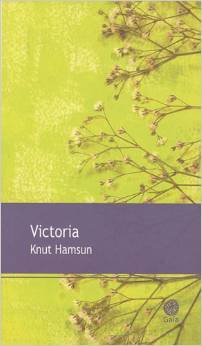What do you think?
Rate this book


128 pages, Hardcover
First published January 1, 1898
‘The starlings were chattering from the branches above their head. Well and good. God grant them a long life… He had made a speech for her at dinner and torn his heart out; it had cost him dearly to correct and cover up her impertinent interruption, and she hadn’t even thanked him. She had picked up picked up her glass and taken a draft. Skoal! Look at me, see how prettily I drink…[sic]’
 come to my blog!
come to my blog!What was love? A wind whispering among the roses, no, a yellow phosphorescence in the blood. Love was a hot devil's music that set even the hearts of old men dancing. It was like the marguerite, which opens wide as night comes on, and it was like the anemone, which closes at a breath and dies at a touch.
Alas, love turns the human heart into a mildewed garden, a lush and shameless garden in which grow mysterious, obscene toadstools.
"Asked what love is, some reply: It is only a wind whispering among the roses and dying away."